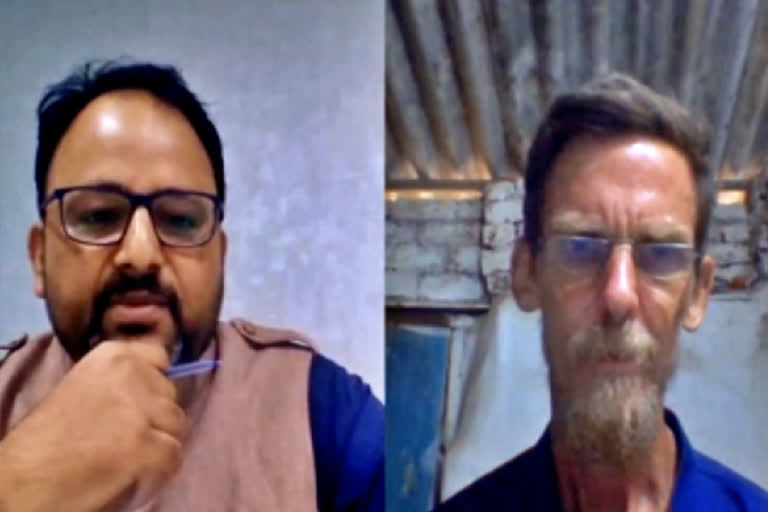Hyderabad: India has been witnessing an unprecedented migration, never seen and registered before as far as memory goes.
Hordes of people from the urban settlement are migrating back to their respective villages, on foot, buses, trains, cycles and auto-rickshaws.
Whether the rural infrastructure can provide succour to millions of workers and ensure their survival is a pertinent question.
India's famous economist Jean Drèze, who is originally from Belgium, spoke to ETV Bharat's Regional Editor Braj Mohan about the sustainability of employment beyond the short term.
Drèze has been witnessing the migration process from one of the poorest districts in Jharkhand, Latehar.
Drèze, who contributed significantly towards the drafting of India's rural job guarantee scheme, MGNREGA, told ETV Bharat that had MGNREGA not been in place, one can imagine what would have happened to millions of workers- who depend on the rural job guarantee scheme for their survival.
READ: EXCLUSIVE: Oli led Communist govt is resposible for India-Nepal dispute, says Pangti
On being asked where the present situation of India is heading to, he said that in poor states like Jharkhand and Bihar, the situation will turn serious because there will be little employment even after the lockdown is lifted.
"Mass employment also means that workers lose their bargaining power. They will have to accept whatever payment is given to them by the employees. Today, the focus of the entire country is on migrant worker, who are on their way to their respective states, but the entire working class is now in a very precarious situation", Drèze said.
"When a five-year-old girl died of hunger in Latehar a few days ago, it became news but day to day hunger goes unreported most of the time", he claimed.
Drèze said that the situation is even worse in Bihar where about 50 per cent of rural families do not have any land of their own.
"In the days ahead, such people will have little hope of immediate employment other than MGNREGA," he stated.
On the question of what is the reality of rural areas of Jharkhand, Drèze said that short-term employment guarantee schemes are the only means to provide job as a road map for the scheme is already in place.
"Many states like Rajasthan, Tamil Nadu and Chhattisgarh are already making good use of this scheme for crisis relief. Most people survive with the help of the public distribution system, but they need to earn money- for cooking oil, soap, children's school fees and so on. MGNREGA is a short term measure but in the coming months, it will play a critical role as other employment opportunities are likely to be very scarce", he claimed.
He further said that in states like Jharkhand, there are many local resources that could be used for the people, like horticulture, pisciculture and forest products.
"While Bihar has fewer natural resources in comparison to Jharkhand, it has human resources that are not well taken care of. Bihar has to learn from Kerala which managed migration people's benefit," he said.
Drèze also said that if MGNREGA is implemented properly, then more funds will be needed because its demand is very high these days. The workers who have gone back to their village, will come to the cities again, but not so soon.
READ: EXCLUSIVE: Statewide protest will be held if ban on paddy sowing is not lifted, says Hooda



